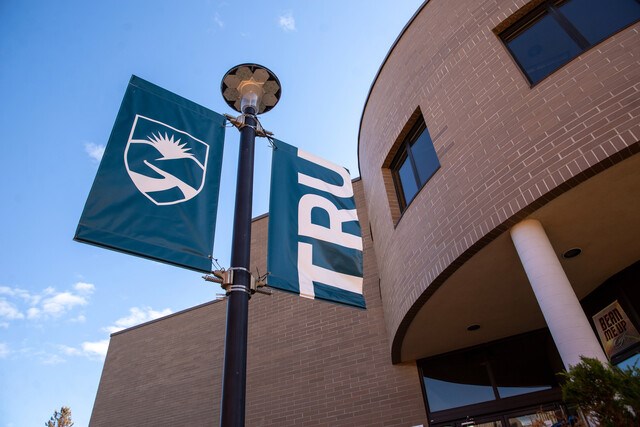Thompson Rivers University is the first post-secondary institution in the province to approve a guaranteed-tuition model for its international students.
The new model was approved by the university’s board of governors earlier this month, and means new international students will pay the same tuition rate for the duration of their program.
The new model will come into effect next September for new students.
“We started this work three years ago, because we started thinking that we need to provide tuition certainty and transparency,” TRU’s VP International Baihua Chadwick told the board of governors.
TRU’s current tuition payment method will be replaced by a pay-per-credit method, with undergraduate programs tuition fees being set at $849 per credit. Tuition amounts will be adjusted annually.
TRU’s master of business administration, master of environmental economic and management, master of science in environmental economics and management, and English for academic purposes programs will be exempt from the new tuition model.
All other international tuition fees for other graduate and trades programs will be hiked by 15 per cent next fall when the new tuition model comes into effect.
“The reason we made some exceptions to the program is because in comparing our tuition rate with our competitors, we believe that we need to make sure that we don't price ourselves above the market,” Chadwick said.
For continuing international students and students in exempt programs, tuition fees will increase by an estimated 3 per cent for Fall 2025 and similar increases over subsequent years. Tuition increases will be set so that continuing students don’t pay more than new students over the duration of their program.
TRU hiked international tuition by 4.7 per cent in the 2022-23 academic year, 6.9 per cent in 2023-24 and 5 per cent in 2024-25. Domestic tuition increases are capped at 2 per cent annually.
A ‘band-aid’ solution?
The TRU student union is one of numerous student unions across the province that has been calling for a change in how post secondary is funded due to an “over-reliance” on international student tuition and fees.
Sierra Rae, TRUSU university affairs co-ordinator, called the guaranteed tuition model a “band-aid solution.”
“I think that it will improve the knowledge that new students have about how much they're going to be paying, and I think that is a success,” Rae said.
“But the amount that students are paying, which is 15 per cent more, will mean that there are fewer students that are able to come to TRU and probably more barriers to the education that we’re trying to offer.”
Without a cap put on annual increases for new cohorts of international students, Rae said TRU will continue to rely on international tuition and fees.
“I think the piece that we are still missing is that we don't see the broader plan or how this is a sustainable solution,” she said.
“The guaranteed tuition fee model is a guarantee of revenue for the institution, it’s not a guarantee of tuition.”
Loshima Shongo, TRUSU international students’ representative, said some students thought positively of the new tuition model while others thought the yearly increases would continue to create uncertainty.
“The people that are coming into TRU are not certain what will happen to them,” Shongo said. “This may reduce the number of students that may want to enrol.”
Risks are minimal
A report to the board of governors notes the new international tuition fee could further drop declining international enrolment — an issue that already has TRU looking to cut its budget by $20 million.
“However, the proposed tuition guarantee should mitigate this risk and could result in increased interest in enrolling at TRU,” the report states.
The report states there is also financial risk with students locked in at their tuition rate if that revenue doesn’t cover operating cost increases.
In that scenario, the report states subsequent cohorts of new students will have their tuition set at “appropriate amounts based on future projections.”
“Given the implementation of the new model, the risk that the proposed increase will affect TRU’s recruitment strategy is minimal,” the report says.



